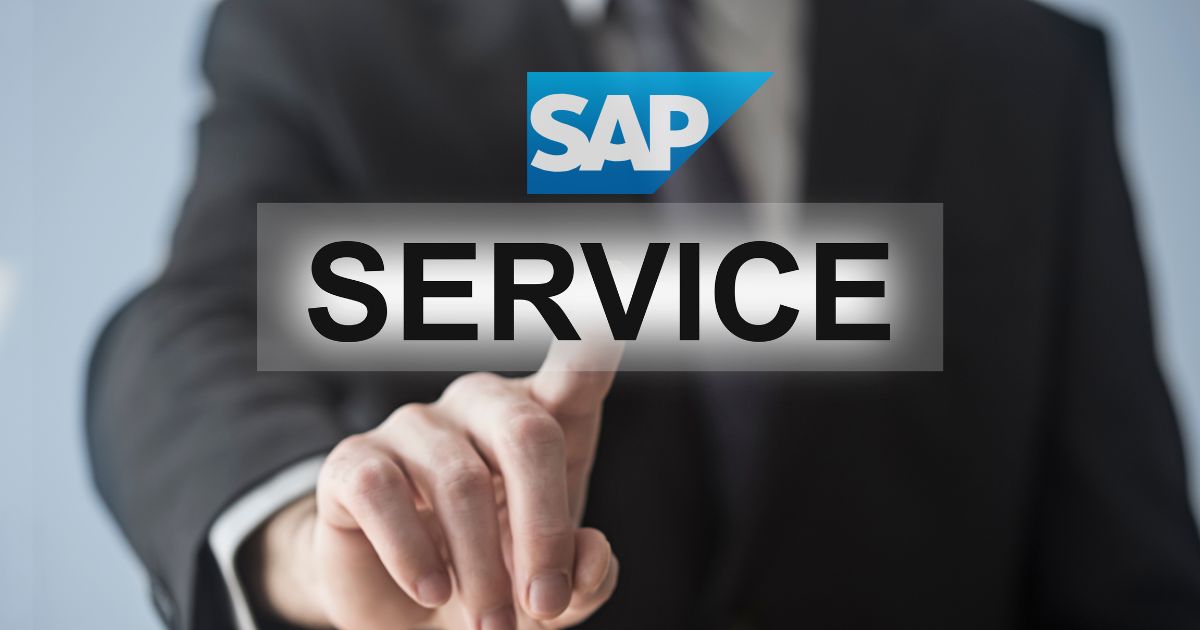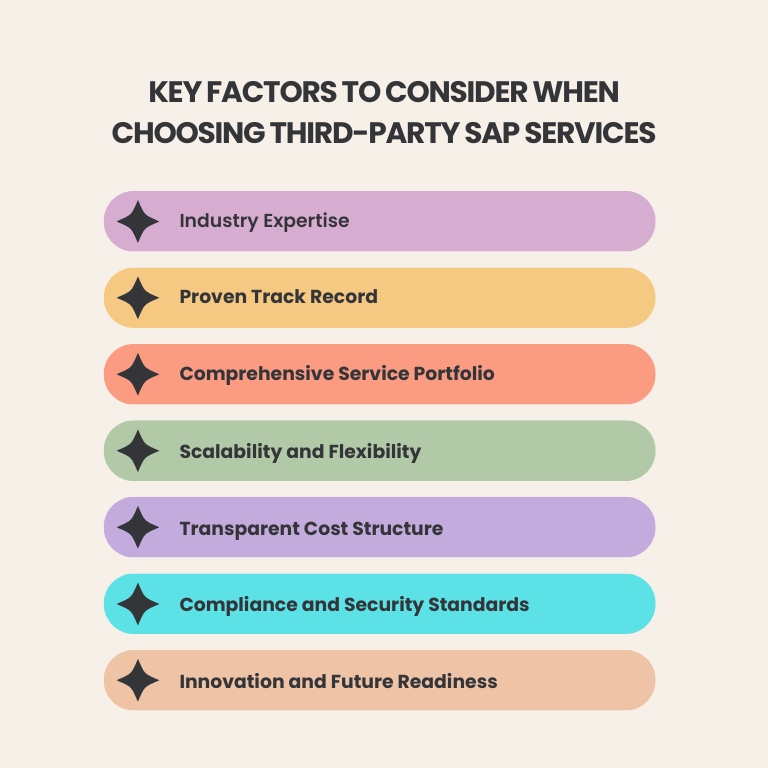
In today’s business environment, SAP systems are the backbone of enterprise operations. From finance and HR to supply chain and analytics, SAP enables organizations to run critical functions efficiently. However, while the platform itself is powerful, official SAP support can often feel restrictive – expensive contracts, limited flexibility, and shorter lifecycles for older versions.
This is why more businesses are turning to third-party SAP services. These providers offer cost savings, extended support, and greater customization options without sacrificing system reliability. But choosing the right third-party SAP partner requires careful evaluation. This blog explores why businesses are making the switch and provides a detailed roadmap on how to select the ideal provider.
Why Businesses Are Switching to Third-Party SAP Services
Businesses today are under constant pressure to reduce costs while innovating faster. SAP’s native support, though robust, is not always aligned with these priorities. Third-party services address these gaps by offering:
- Significant cost savings – Organizations can cut support and maintenance costs by 30–50%.
- Extended lifecycle support – Older SAP versions (such as ECC or R/3) can still be supported even after SAP ends mainstream support.
- Tailored solutions – Unlike one-size-fits-all contracts, third-party partners provide customized support packages.
- Faster resolution times – Many providers assign dedicated experts to ensure quick turnaround.
- Innovation-focused services – Some providers help businesses adopt SAP S/4HANA, integrate AI, or migrate to cloud platforms.
7 Key Factors to Consider When Choosing Third-Party SAP Services

Selecting a third-party SAP provider should not be rushed. Here are the essential criteria to guide your decision:
1. Industry Expertise
SAP systems vary across industries. For example, a retail company may prioritize SAP modules for inventory management, while a financial institution may focus on compliance and risk reporting. Partnering with a provider that understands your industry ensures smoother implementation and ongoing support.
2. Proven Track Record
A credible third-party SAP services provider should showcase case studies, customer references, and proven success stories. Look for evidence of long-term partnerships, not just short-term fixes.
3. Comprehensive Service Portfolio
Your provider should go beyond basic maintenance. Key services to look for include:
- SAP managed services – Full system monitoring and support
- Custom development – Tailored solutions for unique workflows
- System integration – Connecting SAP with other enterprise platforms
- Cloud migration support – Transitioning SAP workloads to AWS, Azure, or private cloud
- Security and compliance management – Protecting sensitive enterprise data
4. Scalability and Flexibility
Your SAP needs today may not be the same tomorrow. Choose a partner who can scale their services as you grow, whether that means supporting global rollouts, handling new modules, or integrating emerging technologies like AI and IoT.
5. Transparent Cost Structure
Hidden costs can be a dealbreaker. Request a clear breakdown of pricing that includes licensing, upgrades, support, and future scalability. A reliable third-party SAP partner will be upfront about savings compared to official SAP contracts.
6. Compliance and Security Standards
With SAP systems handling sensitive business data, security cannot be compromised. Verify that the provider complies with standards like GDPR, ISO 27001, or SOC 2. Strong data protection and cybersecurity practices should be a top priority.
7. Innovation and Future Readiness
Your provider should not only support your SAP environment but also prepare it for the future. Look for expertise in:
- SAP S/4HANA migrations
- Cloud-native SAP solutions
- Advanced analytics and AI integrations
- Automation of repetitive SAP processes
Questions to Ask a Potential Third-Party SAP Partner
When evaluating vendors, ask questions such as:
- What industries do you specialize in?
- How do you handle legacy SAP system support?
- Can you share client success stories or references?
- What is your average response time for critical issues?
- How do you ensure compliance and data security?
- What is included (and excluded) in your pricing model?
These questions will help uncover whether a provider is the right long-term partner.
Common Mistakes to Avoid
While searching for the right third-party SAP partner, businesses often fall into these traps:
- Choosing solely based on price – The cheapest option may lack expertise or reliability.
- Overlooking compliance – Security certifications are non-negotiable.
- Ignoring scalability – Your needs will grow; ensure the provider can grow with you.
- Skipping due diligence – Always verify references and customer feedback.
Final Thoughts
The decision to switch to third-party SAP services can significantly impact your business operations, cost structure, and ability to innovate. By carefully evaluating providers based on industry expertise, service offerings, scalability, compliance, and cost transparency, businesses can unlock greater value from their SAP investments.
With the right partner you won’t just reduce costs, you’ll gain a more agile, secure, and future-ready SAP ecosystem that supports your growth for years to come.
Take the Next Step with Varchai
Don’t let outdated systems hold you back. With Varchai’s expertise in SAP S/4HANA, SAP Fiori, and tailored optimization services, you get performance, security, and scalability. Reach out now to schedule a free consultation and discover how Varchai can transform your SAP journey.

